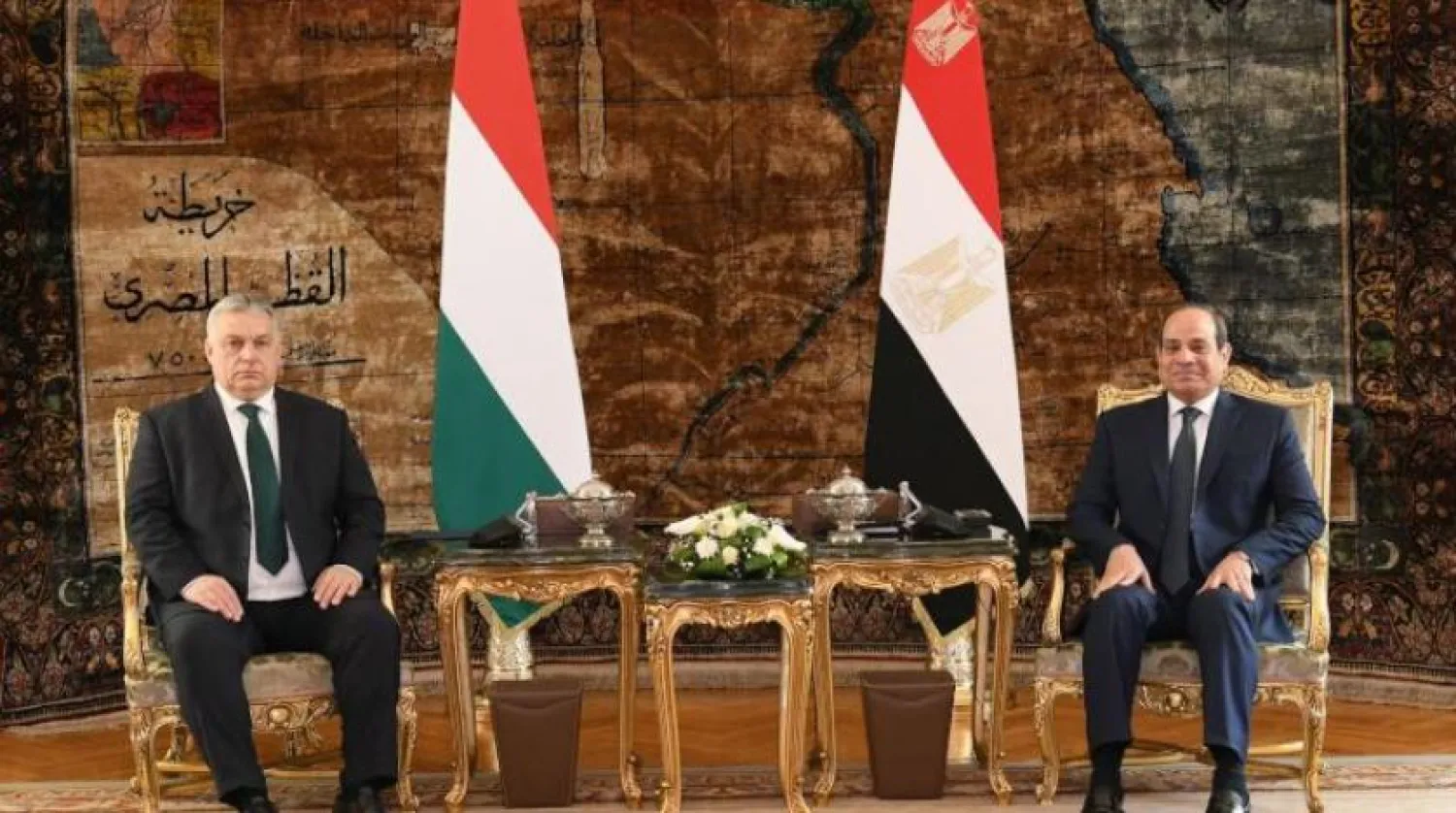Hungary's Prime Minister Victor Orban on Tuesday thanked Egypt for its role in capping Europe-bound migration as the two countries inked a series of preliminary agreements in Cairo.
Orban's praise for Egypt, and its president, Abdel Fattah al-Sisi, came during his visit to the Egyptian capital in which the two governments signed various memorandums of understanding in nuclear cooperation, education and sports.
In a joint media conference following the signings, Orban spoke of a need to reduce East-West divisions in Europe. In return, Sisi praised Orban's understanding of the region, describing the relationship between Egypt and Hungary as a "role model."
"We don’t want the world to be populated by homeless migrants who have been separated from their homeland," Orban said, according to Hungarian state media. “For its work, Europe owes Egypt its thanks, respect and support.”
Populist Orban is an outspoken opponent of immigration in Europe.
Sisi’s government has in recent years upgraded border security, preventing the North African country from becoming a major departure point for Europe-bound migrants like neighboring Libya.
Orban made similar praises of Egypt’s capping of European-bound migration in a visit he made to Cairo last year.
In a tweet posted after the media conference, Orban said both countries were on the "side of peace" regarding the Ukraine conflict.
Orban has spoken out strongly against several rounds of EU sanctions against Moscow, arguing that they’ve done little to stop the war and have hurt European economies more than Russia.
Relations between Egypt and Hungary have remained strong since Sisi came to power in 2013.









